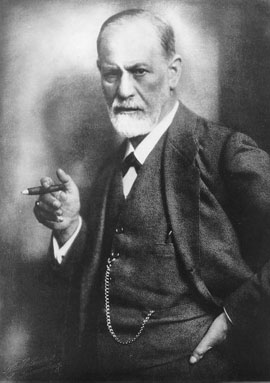Penny Foolish, by Eric Schlosser
THE migrant farm workers who harvest tomatoes in South Florida have one of the nation's most backbreaking jobs. For 10 to 12 hours a day, they pick tomatoes by hand, earning a piece-rate of about 45 cents for every 32-pound bucket. During a typical day each migrant picks, carries and unloads two tons of tomatoes. For their efforts, this holiday season many of them are about to get a 40 percent pay cut.
Florida's tomato growers have long faced pressure to reduce operating costs; one way to do that is to keep migrant wages as low as possible. Although some of the pressure has come from increased competition with Mexican growers, most of it has been forcefully applied by the largest purchaser of Florida tomatoes: American fast food chains that want millions of pounds of cheap tomatoes as a garnish for their hamburgers, tacos and salads.
In 2005, Florida tomato pickers gained their first significant pay raise since the late 1970s when Taco Bell ended a consumer boycott by agreeing to pay an extra penny per pound for its tomatoes, with the extra cent going directly to the farm workers. Last April, McDonald's agreed to a similar arrangement, increasing the wages of its tomato pickers to about 77 cents per bucket. But Burger King, whose headquarters are in Florida, has adamantly refused to pay the extra penny — and its refusal has encouraged tomato growers to cancel the deals already struck with Taco Bell and McDonald's.
This month the Florida Tomato Growers Exchange, representing 90 percent of the state's growers, announced that it will not allow any of its members to collect the extra penny for farm workers. Reggie Brown, the executive vice president of the group, described the surcharge for poor migrants as "pretty much near un-American."
Migrant farm laborers have long been among America's most impoverished workers. Perhaps 80 percent of the migrants in Florida are illegal immigrants and thus especially vulnerable to abuse. During the past decade, the United States Justice Department has prosecuted half a dozen cases of slavery among farm workers in Florida. Migrants have been driven into debt, forced to work for nothing and kept in chained trailers at night. The Coalition of Immokalee Workers — a farm worker alliance based in Immokalee, Fla. — has done a heroic job improving the lives of migrants in the state, investigating slavery cases and negotiating the penny-per-pound surcharge with fast food chains.
Now the Florida Tomato Growers Exchange has threatened a fine of $100,000 for any grower who accepts an extra penny per pound for migrant wages. The organization claims that such a surcharge would violate "federal and state laws related to antitrust, labor and racketeering." It has not explained how that extra penny would break those laws; nor has it explained why other surcharges routinely imposed by the growers (for things like higher fuel costs) are perfectly legal.
The prominent role that Burger King has played in rescinding the pay raise offers a spectacle of yuletide greed worthy of Charles Dickens. Burger King has justified its behavior by claiming that it has no control over the labor practices of its suppliers. "Florida growers have a right to run their businesses how they see fit," a Burger King spokesman told The St. Petersburg Times.
Yet the company has adopted a far more activist approach when the issue is the well-being of livestock. In March, Burger King announced strict new rules on how its meatpacking suppliers should treat chickens and hogs. As for human rights abuses, Burger King has suggested that if the poor farm workers of southern Florida need more money, they should apply for jobs at its restaurants.
Three private equity firms — Bain Capital, the Texas Pacific Group and Goldman Sachs Capital Partners — control most of Burger King's stock. Last year, the chief executive of Goldman Sachs, Lloyd C. Blankfein, earned the largest annual bonus in Wall Street history, and this year he stands to receive an even larger one. Goldman Sachs has served its investors well lately, avoiding the subprime mortgage meltdown and, according to Business Week, doubling the value of its Burger King investment within three years.
Telling Burger King to pay an extra penny for tomatoes and provide a decent wage to migrant workers would hardly bankrupt the company. Indeed, it would cost Burger King only $250,000 a year. At Goldman Sachs, that sort of money shouldn't be too hard to find. In 2006, the bonuses of the top 12 Goldman Sachs executives exceeded $200 million — more than twice as much money as all of the roughly 10,000 tomato pickers in southern Florida earned that year. Now Mr. Blankfein should find a way to share some of his company's good fortune with the workers at the bottom of the food chain.






